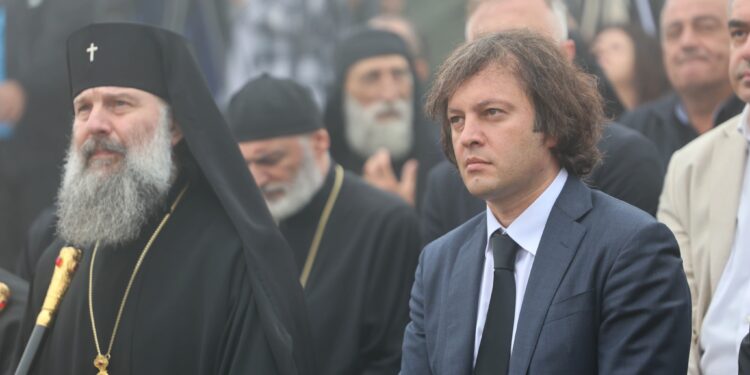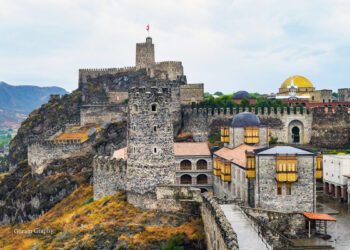On August 12, Georgia commemorates Didgoroba, the anniversary of the decisive Battle of Didgori in 1121, when King David the Builder’s forces triumphed over the Great Seljuq Empire.
The Didgori battle resulted in King David IV’s victory over Seljuk forces invading under Ilghazi, and the subsequent reconquest of the Muslim-held Tbilisi, which then became the royal capital. The victory at Didgori began the medieval Georgian Golden Age, and is celebrated in the Georgian chronicles as a “miraculous victory.”
Didgoroba (Day of Didgori) celebrations usually involve folk music, dance, feigned battles and song at the Didgori monument.* This year, handicrafts were also on display.
Speaking at the celebration, Prime Minister Irakli Kobakhidze called Didgoroba “a symbol of the Georgian nation’s indomitable spirit, unity and victory,” adding that “in every nation’s history, there exist dates which fundamentally determine its future. August 12, 1121, is precisely such a date for us.”
The Prime Minister emphasized that the victory was more than a battlefield success. It represented the triumph of Georgian statehood and Christian values, principles that, he said, have shaped the nation’s culture and history for centuries. The outnumbered Georgian army’s win was credited to King David’s strategic brilliance, the soldiers’ dedication and the unity of the nation.
Kobakhidze drew a parallel between the historic battle and contemporary challenges, saying that today’s ‘modern Didgori’ is the struggle for the country’s full unification and the strengthening of its sovereignty. “Didgori’s main lesson remains unchanged for all generations: when a nation is united for a common purpose, driven by faith in its own righteousness, and possessing a worthy leader, no insurmountable obstacle exists for it,” he said.
In his speech, he called for unity in defending both Georgia’s independence and the Christian values on which, he said, not only the Georgian identity but also European civilization have been founded. “I am confident that through our unity and with this spirit, we shall inevitably achieve our historic goal,” he concluded.


*The monument of Didgori can be reached via the Kojori Highway, or via a scenic wooded route that begins near Mtskheta. There, you will find sculptures representing the defeated Seljuks, and 49 giant swords—one for every 1000 Georgians that apparently took part in the vast battle there.














